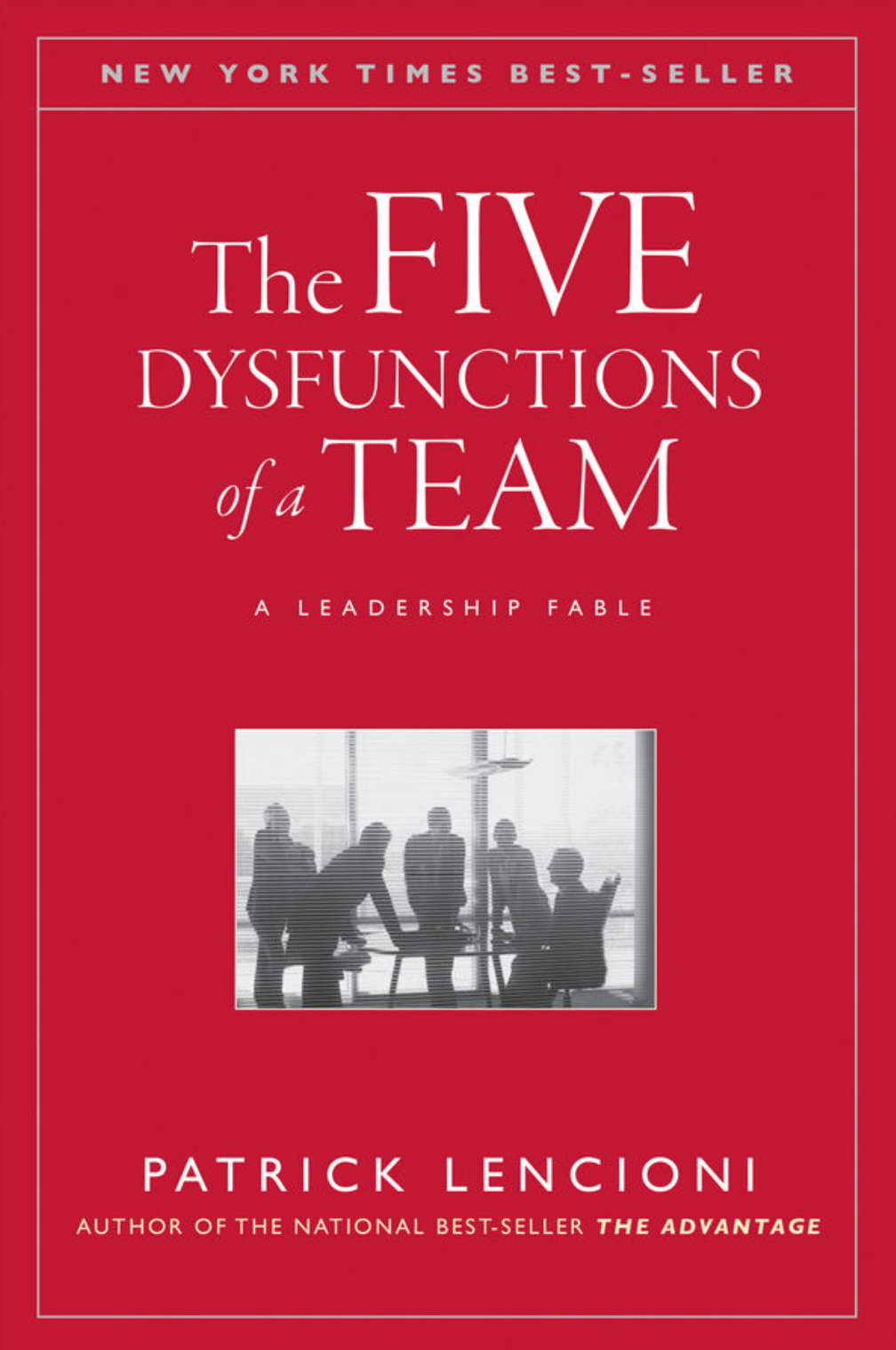Teams that Focus on Results
The Major Premise
What is Mr. Lencioni's major premise on how groups develop into high-performing teams? It comes down to five qualities that people bring to group dynamics: trust, conflict, commitment, accountability, and a focus on results. When these qualities are present, groups are able to accomplish extraordinary things. In the absence of these qualities, groups become mired in personality and political distractions that take away from achieving their goals.
The Five Dysfunctions of a Team describes the absence of these qualities as dysfunctions that contribute to team ineffectiveness or failure. The dysfunctions are:
- Absence of trust
- Fear of conflict
- Lack of commitment
- Avoidance of accountability
- Inattention to results
Each of these dysfunctions has a direct impact on the group achieving its goals, whether they're strategic or operational. Trust is the foundation on which we deal with all the other dysfunctions.
Absence of Trust
As Lencioni writes:
"Trust is not the ability of team members to predict one another's behavior because they've known each other for a long time. Trust is all about vulnerability and is predicated on the simple and practical idea that people who aren't afraid to admit the truth about themselves are not going to engage in the kind of political behavior that wastes everyone's time and energy."
Without trust among players on a team, people will hide their weaknesses, concerns, and doubts about the direction the organization is moving. Trust is the cornerstone of dialogue and having satisfying business relationships. It's a lack of trust, or reluctance to reveal oneself to others, that lead to the second dysfunction:
Fear of Conflict
In the absence of trust, individuals do not challenge each other constructively but hold back out of fear of interpersonal conflict. One example of avoidance of conflict is how people deal with a co-worker who is constantly late. Unless it's explicitly stated by management that being on time is expected, and management holds themselves to the same standard, people will quietly tolerate others being late at the expense of team effectiveness. Another example is someone having a genuine concern about the goals of the team, but choosing to keep it to themselves. This is often out of a fear of producing interpersonal conflict.
When people in business environments choose not to avoid difficult conversations, the makings of healthy conflict take shape. Passionate debate is an example of healthy conflict. When present, it allows for the next dysfunction to be dealt with.
Lack of Commitment
Instead of discussing difficult topics in group meetings, we focus on what's comfortable. No one wants to step forward and be the lone voice for why something can't be done. But it's precisely this voice that allows for the group to achieve true buy-in.
As stated in the book, "The next dysfunction of a team is the lack of commitment and the failure to buy into decisions. And the evidence of this one is ambiguity."
In the absence of discussing the difficult topics, groups leave their individual and collective commitments vague. This is apparent at the end of meetings when people walk out the room, privately asking themselves "did we agree on anything?" or "did anyone commit to anything?" Passionate, unfiltered dialogue allows all the issues (positive and negative) to surface, giving skeptics and sponsors a true sense of buy-in. It's only when groups are able to have dialogue that produces buy-in that they come face-to-face with the fourth dysfunction.
Avoidance of Accountability
Accountability is about follow through. And follow through on commitments requires answering the following three questions:
- What's the action?
- Who's going to take it?
- By when will it get done?
Accountability is about rigorously and consistently asking these questions, then following up with people around what happened. Accountability is not about getting it done on time, but being responsible for everything that comes up along the way. You can count on things getting in the way. It's how you deal with things when they slip that determines the strength of your accountability.
Organizations that produce great results have a strong sense of accountability. It is built into the culture. In the absence of accountability, commitments may be clear in the moment, but don't get realized in a timely fashion and sometimes not at all.
Inattention to Results
Finally, making it through the first four dysfunctions allows groups to stay laser-focused on results. As Lencioni says, teams that produce great results, "trust one another, engage in conflict, commit to decisions, and hold one another accountable."
Recognizing the five dysfunctions in your organization and consciously dealing with them will go a long way to improving the success of your teams.
Accountability
"People aren't going to hold each other accountable if they haven't clearly bought into the same plan."
— Patrick Lencioni
Author and Lecturer


